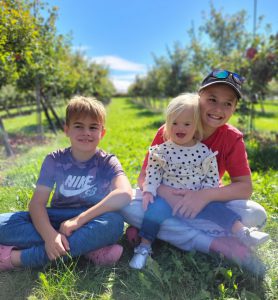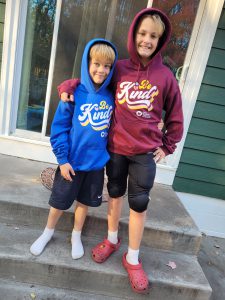The home stretch
As the Reeds head back to in-person school and sports practices, the world is beginning to feel like it did before. Jamie believes the return to normalcy is thanks to the scientists who tirelessly researched, the health care providers who put themselves on the frontlines, and community members, both near and far, who have gotten vaccinated.
“Our family is very understanding and reasonable. We’re not controversial. We do not judge others,” Jamie stated. “In my opinion, I truly don’t see a way out of this pandemic unless almost everyone who is medically and religiously able to get vaccinated does so.”
When asked why it was important for her family to share their story, Jamie said, “We’re living proof that you never know how a short-term illness or life-long condition will affect you. The vaccine helps reduce a lot of our risk.” She went on to say, “If readers can learn one thing from our health ups and downs, it’s to expect the unexpected. If you can avoid COVID-19 altogether, why wait and see how it may affect your family?”
Children’s Minnesota appreciates the Reeds openness when sharing their perspective. We encourage you to follow their lead and talk with your child’s primary care provider about getting vaccinated against COVID-19. To learn more, check out our resource page or visit the CDC website.


